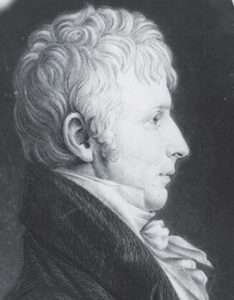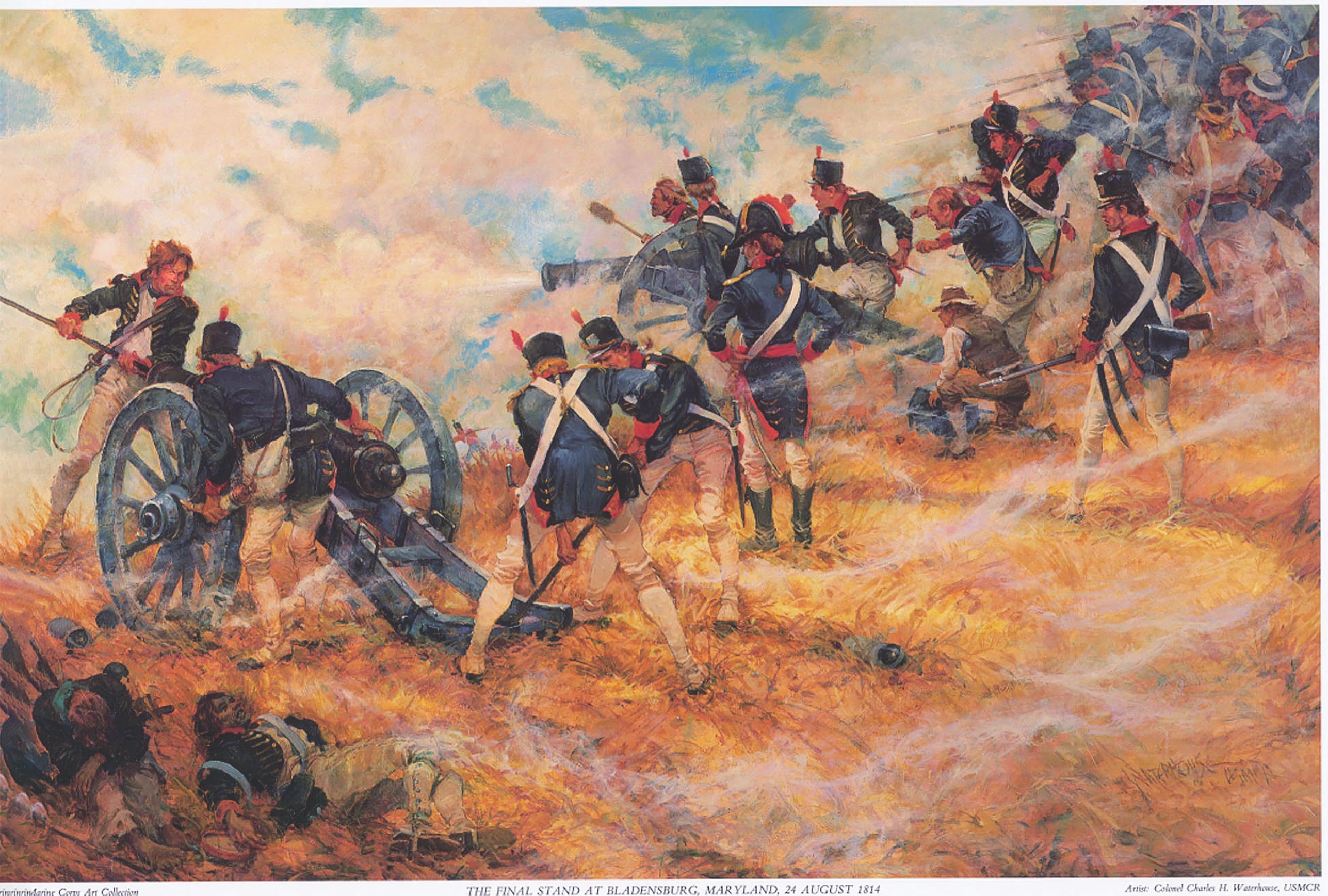After the last American forces evacuated Kabul, Afghanistan’s capital, at midnight on August 31, President Biden hailed the operation as an “extraordinary success.” At least he thought so. What the media had been showing for a week was an extraordinary debacle: desperate Afghans dropping from American airplanes as they took off; 13 troops and dozens of Afghans killed by Afghanistan’s ISIS affiliate in the crowd outside the airport; mounds of equipment, an estimated 100 American citizens, and who knows how many Afghan allies, left behind. Boomers recalled the fall of Saigon in 1975 at the end of the Vietnam War. But history offers an even more chaotic wartime abandonment of a capital: Washington, DC, falling to the British at the nadir of the War of 1812.

When president James Madison asked Congress for a declaration of war in June 1812, he cited reasons why Britain deserved it: interfering with American trade, impressing American sailors into the Royal Navy, inciting Indian wars in the old northwest. Our wrath was righteous, but our readiness was low. Winfield Scott, then a young lieutenant colonel, described the officer corps at the time the guns went off thus: “imbeciles and ignoramuses….sunk into either sloth, ignorance, or habits of intemperate drinking.” Secretary of War William Eustis and Secretary of the Navy Paul Hamilton had gotten their jobs because they were Madison allies reliable at capital political infighting. But Eustis, a former Army doctor, was overwhelmed trying to manage a large organization, and Hamilton was an alcoholic who quit working at noon. Madison himself, however brilliant he was as a theorist and a practical pol, had never heard a shot fired in anger.
After a year of debacles, Madison tried to clean house. William Jones, tapped to head the Navy, knew the sea from days as a merchant. John Armstrong, in at War, replaced imbeciles and ignoramuses with hard chargers like Scott. Armstrong, however, was a loose cannon. Madison sometimes learned of decisions he had made by reading about them in the press. Britain, meanwhile, had issues of its own: winning a world war against Napoleon.
But after Boney was exiled to Elba in the spring of 1814, Britain turned its full focus on its cheeky transatlantic foe.
A naval force under Admiral Sir George Cockburn had been raiding Chesapeake Bay for a year. A score of ships under Admiral Alexander Cochrane and 4,500 veteran troops under General Robert Ross joined that fray in August. Expecting such a stroke, Madison had picked a brigadier general to organize the defense of the region. But the general he picked was a bad choice. William Winder was a lawyer with only two years’ military experience. But his uncle Levin Winder was governor of Maryland. Maryland was a politically divided state: the first blood of the war had flowed in Baltimore when pro- and anti-war partisans rioted. Madison needed the nephew Winder to keep Maryland happy.
At this moment Madison’s relations with Armstrong collapsed, never to recover. Madison sent his secretary of war a letter early in August spelling out exactly what he wanted him to say. Armstrong reacted by deciding not to say or do anything unless specifically asked.
On August 19, Ross’s troops debarked at Benedict, Maryland. Armstrong believed the enemy forces to be heading for Baltimore, America’s third largest city and a major port, 50 miles north. “Baltimore is the place, sir,” he predicted. But Washington was only 35 miles to the northwest: perhaps the Brits would instead make a detour.
Their most obvious path to Washington lay through Bladensburg, a town on the east branch of the Potomac featuring both a bridge and a convenient road through the hills. Winder, however, believed the foe would cross the east branch directly south of the capital at the Navy Yard, in present-day Anacostia. He posted his 7,000 troops, mostly militia, halfway between the two points, and wasted his time in frantic scouting and pointless activity.
At midnight on August 23 Madison learned that the British indeed had turned left and were marching on the capital. In the morning Madison conferred with Winder at the Navy Yard. After Winder left to concentrate his forces at Bladensburg, Armstrong showed up. In a conversation epitomizing their dysfunctional relationship, Madison asked if he had any advice. Armstrong didn’t, but suggested that the Americans, militia vs. regulars, “would be beaten.” Madison “expressed to him my concern and surprise at the reserve he showed.”
The president, 63, borrowed a brace of pistols and rode for Bladensburg to see for himself. Upon arriving, he had to be warned back by an American horseman: he had ridden beyond the American front lines, and the British were already forming up on the far bank.
Madison and Armstrong, who had come to Bladensburg as well, rode up to Winder for a last consult. Muskets and artillery were already firing. This racket spooked Madison’s horse, keeping the president away from the pow-wow. After that conclave was done, Madison asked Armstrong for his final opinion. The arrangements, the secretary said laconically, “appeared to be as good as circumstances permitted.”
The defenders outnumbered the attackers, but the British troopers had superior discipline, plus Congreve rockets, a new weapon both destructive and frighteningly loud. Only 500 American sailors who arrived at the last minute from the Navy Yard held their ground; their comrades broke and ran. Wits dubbed the embarrassing spectacle “the Bladensburg Races.”
Madison had already returned to the White House, deciding, correctly, that his presence during actual combat would be distracting. Wife Dolley, given an alert ahead of time, had decamped; the Madisons’ teenaged slave, Paul Jennings, had helped her roll up Gilbert Stuart’s portrait of George Washington for transport. The president tarried only briefly before hopping a ferry to Virginia.
Over the next few days, Madison wandered the countryside, staying one night at the home of an anti-war Quaker in Brookeville, Maryland. Official Washington meanwhile had burned to the ground. Americans themselves torched the Navy Yard; the British, fired up by victory, set the Capitol and the White House aflame. “I never saw a scene at once more terrible and more magnificent,” wrote a French diplomat of the columns of fire and smoke spiraling skyward late on August 24.
Huge differences mark the routs of 1814 and 2021. Madison’s occurred after two years of fighting; Biden’s was meant to end two decades of war. Madison’s humiliating defeat was followed by victory: the British moved on to Baltimore, where a sniper killed Ross, his troops were repulsed, and a naval bombardment of Ft. McHenry produced only “The Star Spangled Banner.” Other late victories allowed Madison to end the war in an honorable draw. We may not know for years the payoff, if any, of Biden’s Kabul pull-out.
The Kabul Derby nevertheless echoes the Bladensburg Races. Both Madison and Biden are career politicians, more comfortable in cloakrooms than in corner offices, or bestriding the world stage.
Politics influenced them, arguably too much: Madison picked Eustis, Hamilton, and Winder for reasons other than competence; Biden wanted to be known as the president who undid his predecessors’ blunders.
Yet politics does govern in a republic, whose people must believe that power is being well used, however many bumps occur along the way. May the War on Terror end at least as well as the War of 1812.





